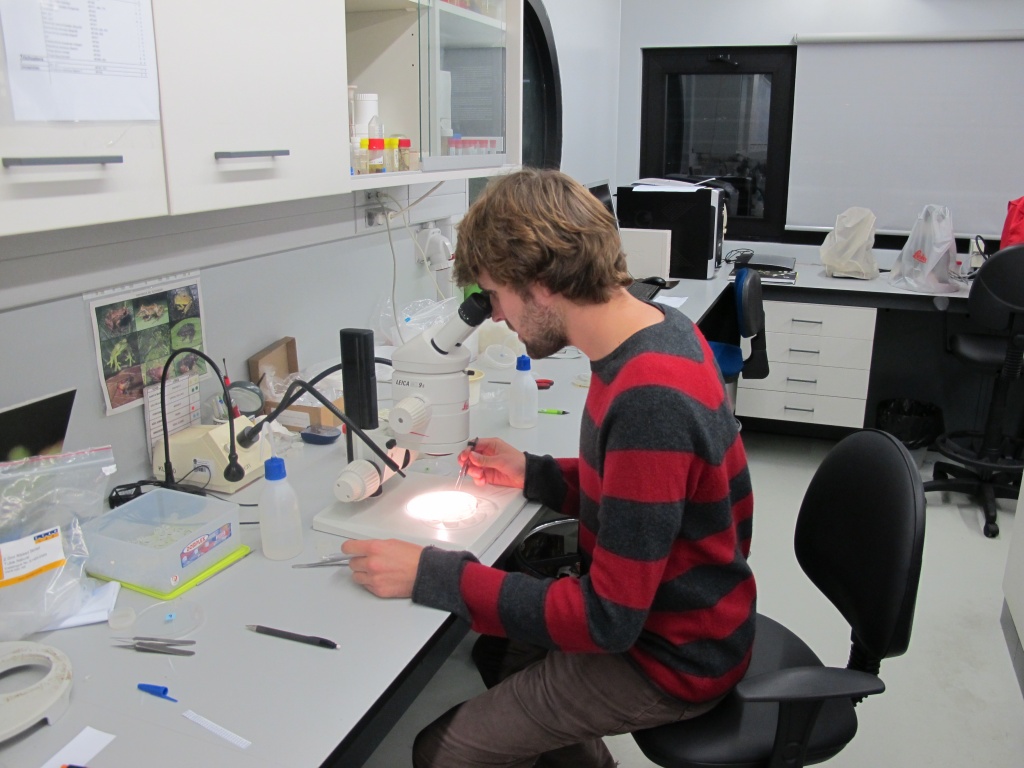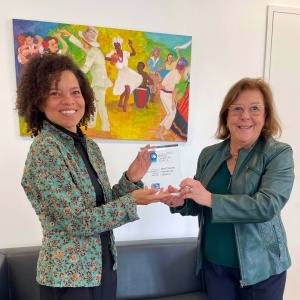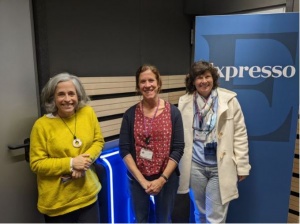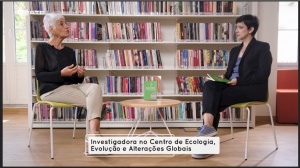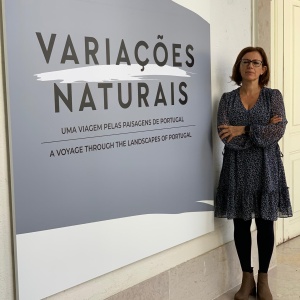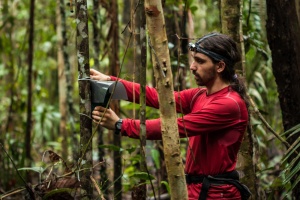28/07/2017. Interview by Marta Daniela Santos.
We continue to remember the cE3c members distinguished in the cE3c Annual Meeting 2016; and this week, the interview will be in English :)
Thomas Matthews (IBBC-cE3c/GBA), now an external collaborator of cE3c, was distinguished with the PhD Merit Award at the cE3c Annual Meeting 2016, which took place in June 27-28, 2016, at the Faculty of Sciences of the University of Lisbon (PT).
Thomas Matthews concluded his PhD in Macroecology in 2015, by the University of Oxford, and within the cE3c research group “IBBC – Island Biodiversity, Biogeography & Conservation”, under the supervision of Robert Whittaker (Univ. Oxford) and collaboration of Paulo A. V. Borges (IBBC-cE3c/GBA). Thomas is currently at the School of Geography, Earth and Environmental Sciences of the University of Birmingham (UK), where he continues to investigate various macroecological topics, applying a mixture of theoretical and empirical methods – and from where he continues to collaborate with cE3c.
What is the subject, or what are the subjects, on which you worked during your PhD?
My PhD was titled ‘Analysing, modelling and mitigating the impact of habitat destruction and fragmentation on species diversity: a macroecological perspective’. The study of macroecology involves identifying statistical and ecological patterns that are apparent at large spatial scales, and identifying the processes responsible for these patterns, and my research focused on, through analysis of multiple datasets from across the world, how species diversity and distributions are affected by large scale human-driven land use change. The topic covered a wide variety of different research fields, including global environmental change, fragmentation, island biology, functional diversity, and the application of island theory to habitat fragments. Whilst a lot of the work was more theoretical in nature, there was a substantial applied focus to the project as habitat loss is known to be the leading driver of biodiversity loss worldwide.
What are the main challenges in this research work? (Note: in the sense of what are the following scientific questions you want to answer, what are the main challenges in this area of research, etc)
Due to the increasing recognition of the impacts of habitat loss on biodiversity, a research area has emerged focused on studying ecology in islands of natural habitat surrounded by a sea of anthropogenic land uses, so called ‘habitat islands’. However, this research has largely been undertaken on small-medium scales, generally in single systems. Furthermore, many habitat island studies have used previous results and theory derived in the context of oceanic island research. Thus, the main challenge is to gain a better understanding of the macroecological and biogeographical patterns – for example species–area relationships, nestedness, species abundance distributions -, and underlying processes, in habitat island systems, with the objective of teasing out any general statistical patterns.
Why did you choose this area of research?
From when I was very young, I have always loved the natural world, and even now I am still a keen bird watcher and Lepidopterist outside of academia. This fascination with nature led me to study for an undergraduate degree in Environmental Science, which I really enjoyed. I then went on to study for a Masters in Biodiversity, Conservation and Management at Oxford University where I met Prof. Rob Whittaker, who would become my PhD supervisor, and became interested in ecology at larger, macroecological, scales.
What did it mean to you to receive this award?
I was very grateful to receive the award, as it provided recognition for the work I had put in during the PhD, and it provided financial assistance to visit the Azorean Biodiversity Group in early 2017 to start a new collaboration focused on long-term ecological monitoring and biodiversity patterns.
What advice would you like to leave for anyone who wants to pursue this area?
When working in ecology, evolutionary biology, macroecology, biogeography and other related fields it is easy to become totally focused on your own small project / area of research. However, it is important to recognise the wider context in which your work sits and I would advise anyone starting a PhD in this area to read widely and not just confine yourself to your small topic. In addition, develop - and undertake training where possible- as many skills as possible, including field work skills, lab work, statistics, programming and academic writing. Being proficient in many different areas means you are less restricted in the research you can do. However, at the same time having a good network of people who are experts in different areas is key to learning these skills!
Tags: IBBC

